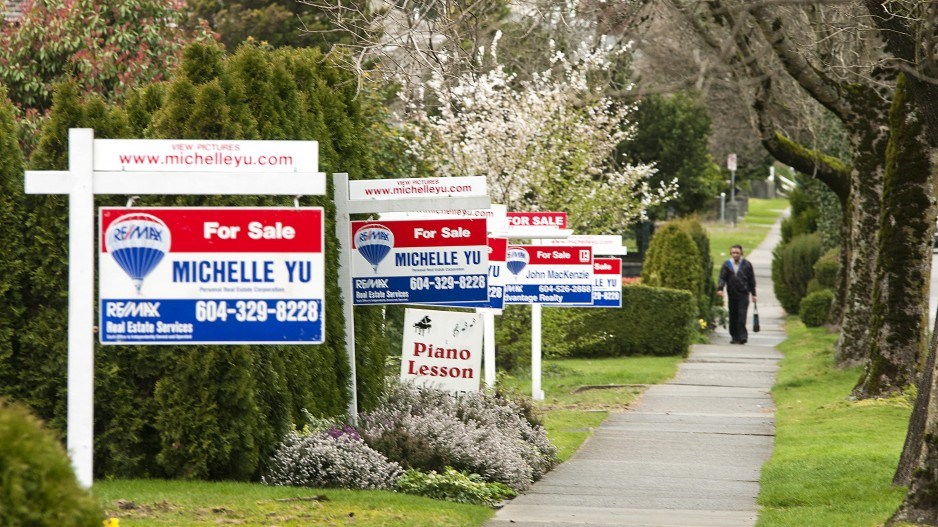Property prices in Greater Vancouver could rise by seven per cent in 2025, and sales volume could increase by 20 per cent, according to an outlook report by national brokerage Re/Max Canada.
The brokerage said in a Nov. 26 report it expects the Vancouver housing market to transition further from a balanced market to a seller’s market, with a surge of activity from first-time homebuyers.
“First-time and move-up buyers are expected to drive market activity in 2025, and single-detached houses are expected to see the most sales activity in the region,” the Re/Max report said of Greater Vancouver.
“The condominium and townhome segment will also be driven by first-time buyers, active around the $800,000 price point.”
The report pointed to regulatory changes such as a new 30-year amortization period (up from 25 years) on insured mortgages taken out by first-time homebuyers.
This “will make it easier for first-time homebuyers to purchase a home in [Greater Vancouver], and declining interest rates will continue to encourage buyers to enter the market as they continue to impact mortgage rates,” said the Re/Max report.
Re/Max Canada president Christopher Alexander said move-up buyers are also in a favourable spot.
“B.C.’s got the strongest level of equity-to-loan ratios,” he told BIV on Dec. 19. “More people in B.C. own more of their homes. … The move-up market and beyond should be in a pretty good position if they want to transact.”
Alexander said the BC NDP, which was narrowly returned to power in last fall’s provincial election, “has been really using every tool that they can to curb demand, and it will be interesting to see the true effect of those measures going forward.”
But he suggested the governing political party needs to address housing fundamentals rather than beating around the bush.
“They’re all just Band-Aid solutions that only have short-term effects,” Alexander said of measures like the speculation and vacancy tax, short-term rental rules and the new home-flipping tax that went into effect Jan. 1.
“The real challenge that B.C., and frankly the rest of the country, faces is lack of housing supply, no national housing strategy and no co-ordinated effort from all three levels of government to tackle it. It could delay demand for the short term, but without methodical, strategic housing planning, it’s only going to be a short-term fix.”
He acknowledged recent reductions in some immigration targets by the Liberals at the federal level, but suggested it’s too little, too late for affordability. Alexander said many newcomers rent for several years before buying property, so their market impact is limited.
“It could have an effect on the rental market, but the challenge we face is that we’ve already brought in a tremendous amount of newcomers without adequate infrastructure in health care, housing,” he said. “So it will be a while until that catches up.”
Alexander said that in three or so years, there needs to be enough new housing to accommodate existing immigrants who will then have more buying power.
“My concern is that once the newcomers kind of filter through, we’re not going to have the new housing in three years’ time, which is when some of them might be interested in buying, to kind of curb demand a bit,” he said.





